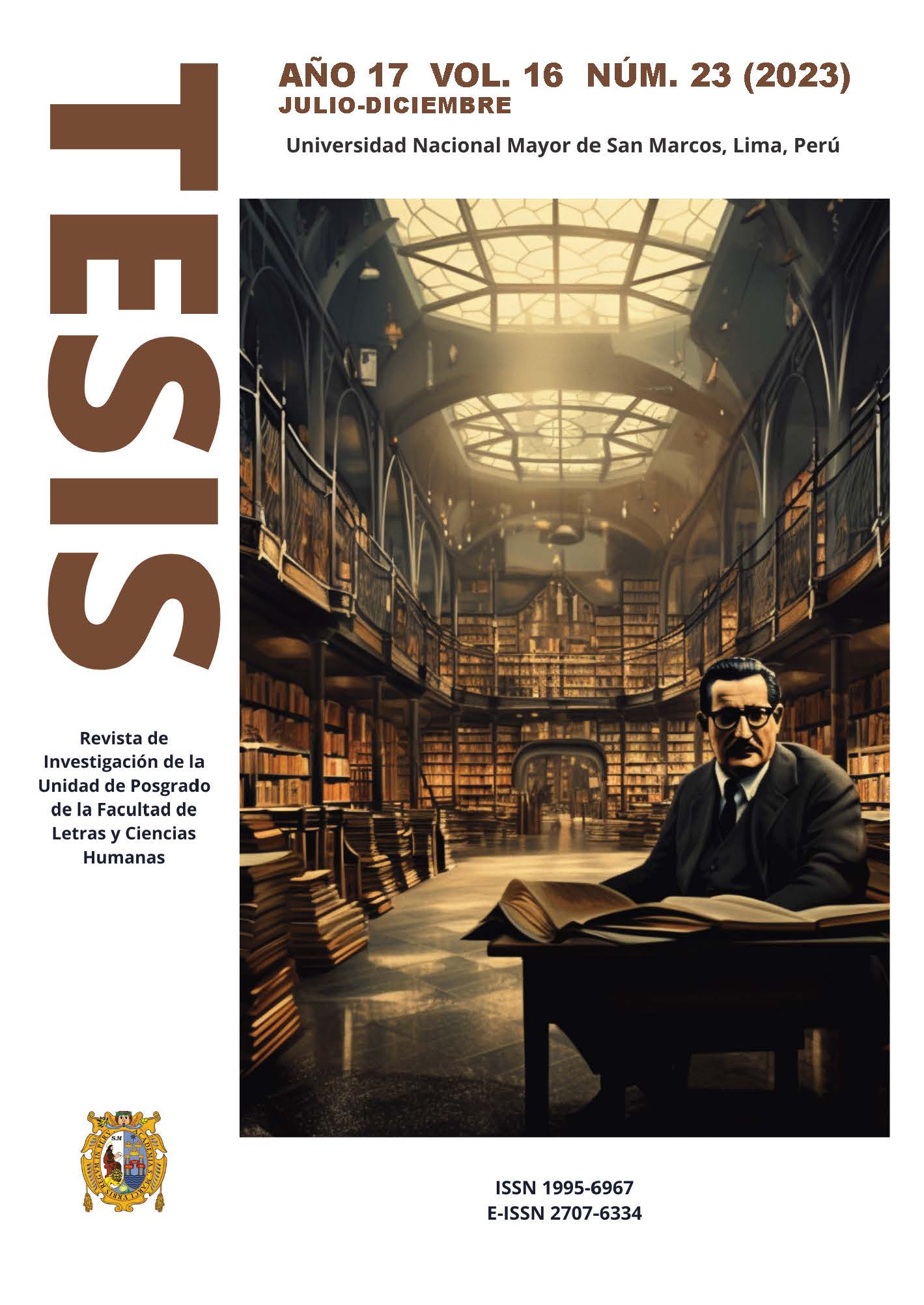Criticism of Peruvian literature and Mariateguian Marxism as a sociology of knowledge
DOI:
https://doi.org/10.15381/gbajrr94Keywords:
José Carlos Mariátegui, sociology of knowledge, Latin American Marxist thinking, Peruvian literatureAbstract
The Marxist approach attributes ideas and literary production to the level of development of material productive forces, that is, to the “economic structure” on which certain forms of “social consciousness” are erected. From there, the emphasis is placed on the interests that influence knowledge and on revealing the dominant ideology as a consequence of social class domination. The classic political economy, Hegel’s philosophy of law, and liberal thinking are explained in light of the rise of the middle class that had achieved political and economic power in Europe; a historical condition that could not simply be assumed in Latin America. Therefore, Mariateguian Marxism demands an effort of resignification to be able to characterize the fundamental aspects of the Peruvian socio-historical formation. It is therefore a remarkable effort in self-understanding one’s own social reality. Mostly, it is an innovative way to analyze and explain critically the phenomenon of literature that expresses the specific character of Latin American modernity, which suggest a different strategy of analysis than history of ideas and intellectuals.
References
Adorno, T. (1962). Prismas. La crítica de la cultura y la sociedad. Ariel.
Andújar, A. H. (1999). El ideal de perfección en el Ariel de Rodó. Araucaria, 1(1).
Basadre, J. (2005). El comienzo de la Reconstrucción. En Historia de la República del Perú (1822-1933). Tomo 10. Empresa Editora El Comercio.
Chávez, J. M. y Mujica, F. (2015). Sociología de la cooptación: la imposibilidad de ser élite en América Latina y la reforma educacional chilena como testimonio de la ideología de la modernidad inducida. Persona y Sociedad, 29(1), 63-84.
Ferretti, P. (2020). El mito de Rodó no ha obrado nunca. Notas a propósito de Mariátegui y el arielismo latinoamericano. Revista Latinoamericana del Colegio Internacional de Filosofía, 7, 79-91.
Hale, C. (1991). Ideas políticas y sociales en américa latina, 1870-1930. En L. Bethell (ed.), Historia de América Latina. Vol. 8 (pp. 1-64). Crítica y Cambridge University Press.
Hegel, G. W. (1968). Filosofía del derecho. Claridad.
Hinkelammert, F. (2006). Prometeo, el discernimiento de los dioses y la ética del sujeto. Reflexiones sobre un mito fundante de la modernidad. Polis, 13.
Laclau, E. (2004). Discurso. Estudios: filosofía, historia, letras, 68, 7-18.
Löwy, M. (2000). Prólogo a la edición argentina. En N. Kohan, Ni calco ni copia. Ensayos sobre el marxismo argentino y latinoamericano (pp. 13-15). Biblos.
Lukács, G. (1970). Historia y conciencia de clase. Instituto del Libro.
Mannheim, K. (2019). Ideología y utopía. Introducción a la sociología del conocimiento. Fondo de Cultura Económica.
Marcuse, H. (1999). Razón y revolución. Hegel y el surgimiento de la teoría social. Altaya.
Mariátegui, J. C. (1970). El Alma Matinal y otras estaciones del hombre de hoy. Biblioteca Amauta.
Mariátegui, J. C. (1972). Peruanicemos al Perú. Amauta.
Mariátegui, J. C. (2007). 7 ensayos de interpretación de la realidad peruana. Biblioteca Ayacucho.
Mariátegui, J. C. (1986). Ideología y política. Biblioteca Amauta. Mariátegui, J. C. (2010). La tarea americana. Clacso.
Marx, K. (1982). Escritos de juventud. Fondo de Cultura Económica. Marx, K. (1989). Contribución a la crítica de la economía política. El Progreso. Marx, K. y Engels, F. (1974). La ideología alemana. Grijalbo.
Riva-Agüero, J. (1962). Carácter de la literatura del Perú independiente. Pontificia Universidad Católica del Perú.
Smith, A. (1997). La teoría de los sentimientos morales. Alianza Editorial.
Weinberg, L. (2018). José Enrique Rodó: las distintas modulaciones de la voz del maestro. Latinoamérica, 66, 45-67.
Downloads
Published
Issue
Section
License
Copyright (c) 2024 Gonzalo F. García

This work is licensed under a Creative Commons Attribution 4.0 International License.
THE AUTHORS RETAIN THEIR RIGHTS:
(a) The authors retain their trademark and patent rights, and also on any process or procedure described in the article.
(b) The authors retain the right to share, copy, distribute, execute and publicly communicate the article published in Tesis (Lima) (in example, depositing the article in an institutional repository or publish it in a book), with recognition of its initial publication in the Tesis (Lima).
(c) The authors retain the right to make a later publication of their work, to use the article or any part of it (for example: a compilation of their works, notes for conferences, thesis, or for a book), provided that they indicate the source of publication (authors of the work, magazine, volume, number and date).






